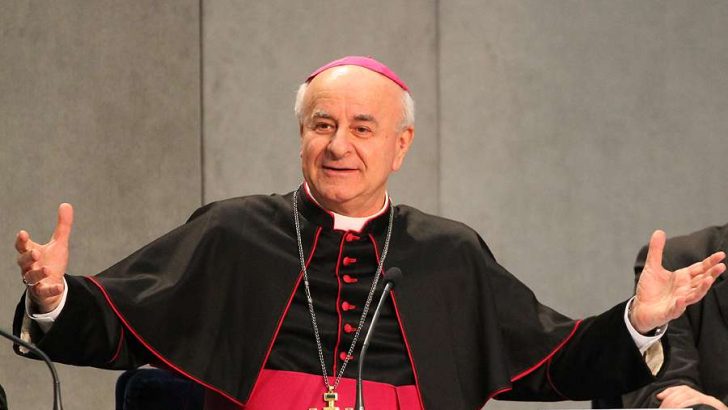Leaders of Christianity, Judaism, and Islam presented a signed declaration to Pope Francis on Monday expressing their total opposition to euthanasia and any form of physician-assisted suicide, as well as voicing their support of palliative end-of-life care.
The document was signed at the Vatican on October 28 by Archbishop Vincenzo Paglia, head of the Pontifical Academy for Life, along with representatives of the Jewish and Islamic faiths. It was given to Pope Francis during an audience.
The position paper states that the three Abrahamic religions “oppose any form of euthanasia – that is the direct, deliberate and intentional act of taking life – as well as physician assisted suicide – that is the direct, deliberate and intentional support of committing suicide – because they fundamentally contradict the inalienable value of human life, and therefore are inherently and consequentially morally and religiously wrong, and should be forbidden without exceptions”.
The paper also affirms the right of healthcare workers to not be coerced or pressured into directly or indirectly assisting in the intentional death of a patient through assisted suicide or any form of euthanasia, especially when doing so would violate the provider’s religious beliefs.
Even if accepted by the local legal system, “moral objections regarding issues of life and death certainly fall into the category of conscientious objection that should be universally respected”, the paper declares.
Healthcare providers, it notes, have the responsibility “to provide the best possible cure for disease and maximal care of the sick”.
The idea for the declaration came from Rabbi Avraham Steinberg, an Israeli medical ethicist, who proposed it to Pope Francis.
The Pope entrusted the project to the Pontifical Academy for Life, which organised an interreligious committee to create the document.
In the nearly 2,000-word position paper, it is stated that the Catholic, Jewish, and Islamic faiths “share common goals and are in complete agreement in their approach to end-of-life situations”.
It also notes that these principles are sometimes in conflict with “current secular humanistic values and practices”.
Preamble
The preamble to the report notes that “the moral, religious, social and legal aspects of the treatment of the dying” are among the most complex and most widely discussed in medicine today.
The issues surrounding the end of life include “difficult dilemmas”, which have increased in recent years, it argues, because of scientific-technological developments, changes in the patient-doctor relationship, cultural changes, and a growing scarcity of resources related to the expense of medical care.
These dilemmas are not primarily medical or scientific, but “social, ethical, religious, legal, and cultural,” it declares, adding that human intervention in the form of medical treatment and technologies “are only justified in terms of the help they can provide”.


 Archbishop Vincenzo Paglia
Photo: CNA
Archbishop Vincenzo Paglia
Photo: CNA 